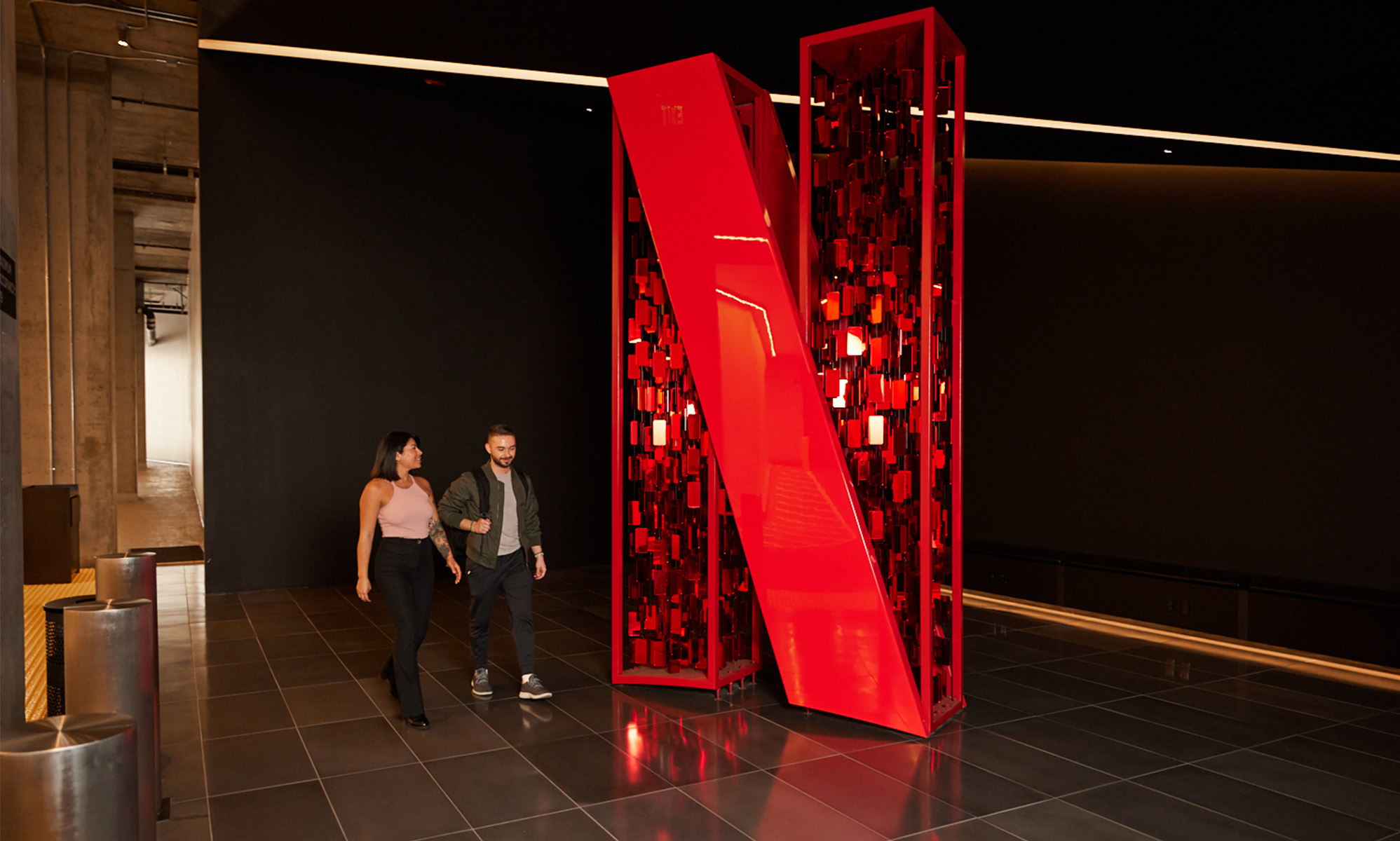Media-streaming veteran Netflix (NFLX 3.36%) is trying a bunch of new things. The king of digital entertainment is adopting a bunch of old-school ideas right now. Some of these moves are already turning heads, but is this a unique moment in time or a fresh long-term strategy for Netflix?
From Netflix views to Billboard hits
I'm sure you've seen a few of the headlines already. KPop Demon Hunters, an animated musical movie produced by Sony Pictures (SONY 0.77%) with exclusive distribution right for Netflix, is setting records.
- Two months after the June 20 release, it's Netflix's second most-watched movie of all time (behind Ryan Reynolds and Dwayne Johnson starrer Red Notice). It will probably take the top spot in the next weekly official report, due on Wednesday.
- Inspired by the massive viewership, Netflix sent the film out to theaters, too. Earning $18 million on a fairly slow August weekend, it became the company's first movie to hit #1 on the weekly box office report.
- At the same time, the KPop Demon Hunters soundtrack landed four songs on the Top Ten of the Billboard Hot 100 list. That includes a second top-spot showing for the lead hit Golden. It's been decades since a soundtrack came close to this dominant showing.
- Naturally, Golden also leads this week's Spotify (SPOT 6.99%) play chart. On Alphabet's (GOOG 1.19%) (GOOGL 1.12%) YouTube Music service, the KPop Demon Hunters owns the top 7 spots right now.
Netflix has a unique power to steer the cultural zeitgeist like this. The KPop charting success reminds me of Stranger Things giving Kate Bush and Metallica best-selling hits some 35 years after the original releases, or Squid Game sweeping the globe with Korean-language drama.
But that's not all. Netflix is opening real-world entertainment centers themed around its hit shows. The first two Netflix House locations will open in November (Philadelphia) and December (Dallas), followed by Las Vegas in 2027. If the ticket sales and related merchandise offerings come in strong, I would expect Netflix to expand this concept to other cities.

NASDAQ: NFLX
Key Data Points
Netflix visits the real world
That's a lot of real-world action from a purely digital entertainment specialist.
Before this plethora of physical reality content, Netflix fans had to soothe their Netflix swag cravings with a handful of licensed T-shirts from Target (TGT +1.62%) and Funko Pop figures. I mean, the Netflix.shop e-commerce store has been around since 2021, but when's the last time you visited that store? And that's still an online experience, even if it puts some physical items in your mailbox. That's not the same thing as exploring a favorite brand, band, studio, or show with hands-on access to stuff in a local store.
Only time will tell whether Netflix leans any further into the physical entertainment angle. For all the endorphin-pushing pleasure of playing Bridgerton mini golf or entering the Squid Game world in virtual reality, brand-centric exploration centers can grow stale over time. And it takes a special kind of creative genius to dominate the pop charts like KPop Demon Hunters is doing right now. You can't count on hitting that high note on a regular basis.

Image source: Getty Images.
Could Netflix become the next Disney (or Universal)?
So I do expect Netflix to try a few more real-world ideas, perhaps ending in full-fledged theme parks someday. Every step along that path moves Netflix just a little bit closer to the old-school entertainment empires of Comcast's (CMCSA +0.57%) Universal Studios or Walt Disney (DIS 0.07%).
I don't know whether that's good or bad for Netflix, its customers, or its investors in the long run. Done right, turning back the clock to the golden age of theme parks, radio play, and movie theaters might be refreshing -- but how long will it last, and what comes next?
But those are extremely long-term issues that may not affect the increasingly digital entertainment industry in this decade or the next. For now, I appreciate Netflix's openness to alternative business tactics. That's how the company killed Blockbuster, shut down the resulting DVD-mailing winner, and built today's streaming business on those ashes.













